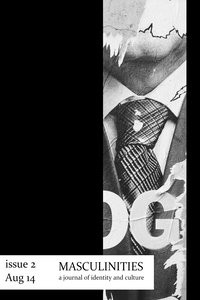Abstract
Coen Kardeşler'in The Big Lebowski adlı filminde, `Dude' karakteri, tüketimciliğe karşı koyan radikal bir kimlik ortaya koyar gibi görünür. Oysa ki filmi, Deleuze'ün `kontrol toplumu' kavramı çerçevesinden incelediğimizde, Dude'un ve filmdeki diğer eril karakterlerin kapalı tüketim döngülerinin tuzağına kapılmış oldukları açıktır. Bu makale, toplumsal cinsiyetin metalaştırılmasını inceleyerek, geç kapitalizmin sınırlarının ötesindeki yaratıcı ve devrimci öznellik olanaklarını tartışmayı amaçlamaktadır. Bu olanakların, rutin bir biçimde sermayenin çıkarları içinde mühürlü kaldıkları kabul edildiğinde, direnmenin çeşitli biçimlerini el geçirip kuşatan mekanizmalar üzerine düşünmek elzem hale gelir. Bu nedenle, burada sunulan analiz, kültürel sermayeyi çerçeveleyen ekonomik modelleri ve dili işe koşmak yerine, kültürü yaratıcı bir güç olarak ele almaktadır.
"Towards an Interrogation of Masculinity's Commodification: Deleuze's Control Society & The Big Lebowski"
Abstract
In the Coen brothers' The Big Lebowski, the character of the Dude appears to offer a radical identity that opposes consumerism, but, by examining the film with Deleuze's theoretical concept of the control society, it is clear that the Dude and other masculine characters are trapped in closed loops of consumption. Examining the commodification of gender, this paper seeks to open up the potentialities of creative and revolutionary subjectivities beyond the confines of late capitalism. Recognizing that such potentialities are routinely sealed off in the interests of capital, it becomes necessary to reflect on the mechanisms that capture and enclose modes of resistance. Therefore, instead of employing economic models and language that frame cultural capital, this analysis embraces culture as creative force.
Details
| Other ID | JA54VF27DR |
|---|---|
| Journal Section | Articles |
| Publication Date | August 5, 2016 |
| Published in Issue | Year 2014 Issue: 2 |


